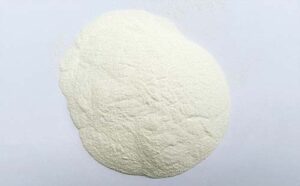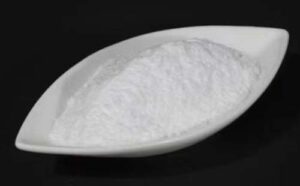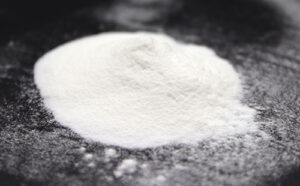-

L-Carnosine

L-Carnosine
L-Carnosine has a number of antioxidant properties, it can be used in pharmaceutical and nutritional area. ZNCBIO is a professional L-Carnosine China supplier and manufacturer, we have rich experience for exporting. Please be sure to email us at info@zncbio.com when you have any demands.
CAS No.: 305-84-0
TYPE: POWDER
BRAND: ZNCBIO
MOQ: 25.0KGS
Product Information:
Product Name: L-Carnosine
Specification available: 99% – 103%
CAS No.: 305-84-0
Appearance: White to off-white crystalline powder
What is L-Carnosine?
L-Carnosine is a naturally occurring dipeptide composed of two amino acids, beta-alanine and histidine. It is found in high concentrations in skeletal muscle, heart muscle, and the brain, where it plays several important roles. As an antioxidant, L-Carnosine helps to protect cells from damage caused by free radicals, which are unstable molecules that can contribute to the aging process and various diseases. It also has chelating properties, allowing it to bind to and neutralize metal ions that can catalyze oxidative damage. Additionally, L-Carnosine helps to maintain the pH balance within cells and tissues, particularly during periods of intense exercise when lactic acid can build up and lower pH levels.
What is L-Carnosine Made of?
L-Carnosine is made up of two amino acids: beta-alanine and histidine. These amino acids are linked together by a peptide bond to form the dipeptide structure of L-Carnosine. Beta-alanine is a non-essential amino acid that is not commonly found in proteins but is synthesized in the liver. Histidine is an essential amino acid that must be obtained from the diet. The combination of these two amino acids in the form of L-Carnosine allows it to perform its unique biological functions, including buffering intracellular pH and protecting cells from oxidative damage.
What is L-Carnosine Used For?
L-Carnosine is used for a variety of purposes in both the medical and athletic fields. In medicine, it is often used as a dietary supplement to support general health and wellness. It is particularly popular for its potential anti-aging properties and its ability to combat oxidative stress. L-Carnosine is also used to support cognitive function and protect against neurodegenerative diseases such as Alzheimer’s and Parkinson’s. In the field of athletics, L-Carnosine is used to enhance physical performance by buffering lactic acid buildup in muscles during intense exercise, thereby reducing muscle fatigue and improving endurance. Additionally, L-Carnosine is used in skincare products for its ability to promote collagen synthesis, reduce wrinkles, and improve skin elasticity.
What are L-Carnosine Benefits?
L-Carnosine offers a wide range of health benefits due to its antioxidant, anti-glycation, and buffering properties. Some of the key benefits include:
1) Anti-Aging: L-Carnosine helps to protect cells from oxidative damage and glycation, processes that contribute to aging and the development of age-related diseases. By neutralizing free radicals and preventing the formation of advanced glycation end-products (AGEs), L-Carnosine can slow down the aging process and improve overall health.
2) Cognitive Function: L-Carnosine has neuroprotective properties and can support brain health. It may help to prevent the accumulation of harmful proteins associated with neurodegenerative diseases such as Alzheimer’s and Parkinson’s, thereby preserving cognitive function and reducing the risk of cognitive decline.
3) Physical Performance**: L-Carnosine acts as a buffer for lactic acid in muscles, reducing muscle fatigue and enhancing endurance during intense physical activity. This makes it a popular supplement among athletes and those who engage in regular physical exercise.
4) Skin Health: L-Carnosine promotes collagen synthesis and helps to protect skin cells from oxidative damage and glycation. This can result in improved skin elasticity, reduced wrinkles, and a more youthful appearance.
5) Cardiovascular Health: L-Carnosine’s antioxidant properties can help to protect the cardiovascular system from oxidative stress and inflammation, potentially reducing the risk of cardiovascular diseases.
6) Immune Support: By reducing oxidative stress and inflammation, L-Carnosine can support a healthy immune system and improve the body’s ability to fight off infections and illnesses.
What are L-Carnosine Side Effects?
L-Carnosine is generally considered safe for most people when taken at appropriate dosages. However, some individuals may experience side effects, particularly when taking high doses. Common side effects can include:
1) Gastrointestinal Issues: Some people may experience stomach discomfort, nausea, or diarrhea when taking L-Carnosine supplements.
2) Allergic Reactions: Although rare, some individuals may have an allergic reaction to L-Carnosine, which can manifest as itching, rash, or swelling.
3) Headaches: High doses of L-Carnosine may cause headaches in some individuals.
4) Altered Blood Pressure: There is some evidence to suggest that L-Carnosine could affect blood pressure, so individuals with blood pressure issues should consult a healthcare provider before taking the supplement.
It is always recommended to consult a healthcare professional before starting any new supplement regimen, especially for individuals with underlying health conditions or those taking other medications.
What is the Difference Between L-Carnosine and L-Carnosine Zinc?
L-Carnosine zinc, also known as zinc carnosine, is a compound that combines L-Carnosine with zinc. This combination is often used for its enhanced therapeutic benefits. The key differences between L-Carnosine and L-Carnosine zinc include:
1) Enhanced Stability: The combination of L-Carnosine and zinc creates a more stable compound, which can provide prolonged therapeutic effects compared to L-Carnosine alone.
2) Gut Health: Zinc carnosine is particularly known for its benefits to gastrointestinal health. It can help to protect the lining of the stomach and intestines, promote healing of gastric ulcers, and support overall digestive health.
3) Synergistic Effects: The combination of L-Carnosine and zinc can enhance the antioxidant and anti-inflammatory properties of both compounds, providing more comprehensive health benefits.
4) Targeted Uses: While L-Carnosine is used for a wide range of general health benefits, zinc carnosine is often specifically recommended for gastrointestinal support and the treatment of conditions such as peptic ulcers and gastritis.
Can I Take L-Carnosine and L-Carnitine Together?
Yes, L-Carnosine and L-Carnitine can be taken together, and doing so may provide synergistic benefits. Both compounds play important roles in cellular energy production and muscle function, making them complementary supplements for enhancing physical performance and overall health. L-Carnitine is involved in the transport of fatty acids into the mitochondria for energy production, while L-Carnosine helps to buffer lactic acid buildup during exercise. Together, they can improve endurance, reduce muscle fatigue, and support recovery after physical activity. However, as with any supplement regimen, it is important to consult a healthcare provider before combining supplements to ensure safety and efficacy.
Is L-Carnosine Good for the Kidneys?
L-Carnosine has shown potential benefits for kidney health due to its antioxidant and anti-inflammatory properties. Oxidative stress and inflammation are major contributors to kidney damage and the progression of chronic kidney disease (CKD). L-Carnosine can help to protect kidney cells from oxidative damage and reduce inflammation, thereby supporting overall kidney function. Additionally, L-Carnosine has been found to improve glucose metabolism and reduce the formation of advanced glycation end-products (AGEs), which can contribute to kidney damage. While more research is needed to fully understand the extent of L-Carnosine’s benefits for kidney health, it shows promise as a supportive supplement for individuals with kidney-related issues.
How Long Does L-Carnosine Take to Work?
The time it takes for L-Carnosine to work can vary depending on the individual and the specific health condition being addressed. Some people may start to notice benefits within a few days to a couple of weeks of starting supplementation, while others may take longer to experience noticeable effects. For acute conditions, such as reducing muscle fatigue during exercise, the effects of L-Carnosine may be felt more quickly. For chronic conditions, such as improving cognitive function or supporting cardiovascular health, it may take several weeks to months of consistent use to see significant results. It is important to follow the recommended dosage and consult a healthcare provider for personalized guidance.
Does L-Carnosine Build Muscle?
L-Carnosine itself does not directly build muscle, but it can support muscle function and performance. By acting as a buffer for lactic acid buildup during intense exercise, L-Carnosine helps to reduce muscle fatigue and improve endurance. This can enable individuals to train harder and longer, which can contribute to muscle growth and strength over time. Additionally, L-Carnosine’s antioxidant properties help to protect muscle cells from oxidative damage, promoting better recovery and reducing the risk of muscle injury. While L-Carnosine is not a muscle-building supplement per se, its supportive effects on muscle performance and recovery can indirectly contribute to muscle growth.
What Does L-Carnosine Do to the Eyes?
L-Carnosine has shown potential benefits for eye health, particularly in protecting against age-related eye conditions such as cataracts and age-related macular degeneration (AMD). Its antioxidant properties help to protect eye cells from oxidative damage caused by free radicals and UV exposure. Additionally, L-Carnosine can prevent the formation of advanced glycation end-products (AGEs), which are linked to the development of cataracts. Some studies have suggested that topical application of L-Carnosine in the form of eye drops may help to improve visual acuity and reduce the progression of cataracts. However, more research is needed to fully understand the extent of L-Carnosine’s benefits for eye health.
Is L-Carnosine Good for Skin?
Yes, L-carnosine is beneficial for skin health. Its antioxidant properties help to protect skin cells from oxidative damage caused by free radicals, which can contribute to premature aging and the development of wrinkles. Carnosine also promotes collagen synthesis, which is essential for maintaining skin elasticity and firmness. Additionally, carnosine’s anti-glycation properties help to prevent the formation of advanced glycation end-products (AGEs), which can cause the skin to become stiff and lose its youthful appearance. As a result, carnosine can help to improve skin texture, reduce
Where to buy L-Carnosine ?
ZNCBIO is a leading China supplier of L-Carnosine, we provide high quality L-Carnosine for customers, if you have any demands, please free contact with info@zncbio.com, we will reply you soon.



